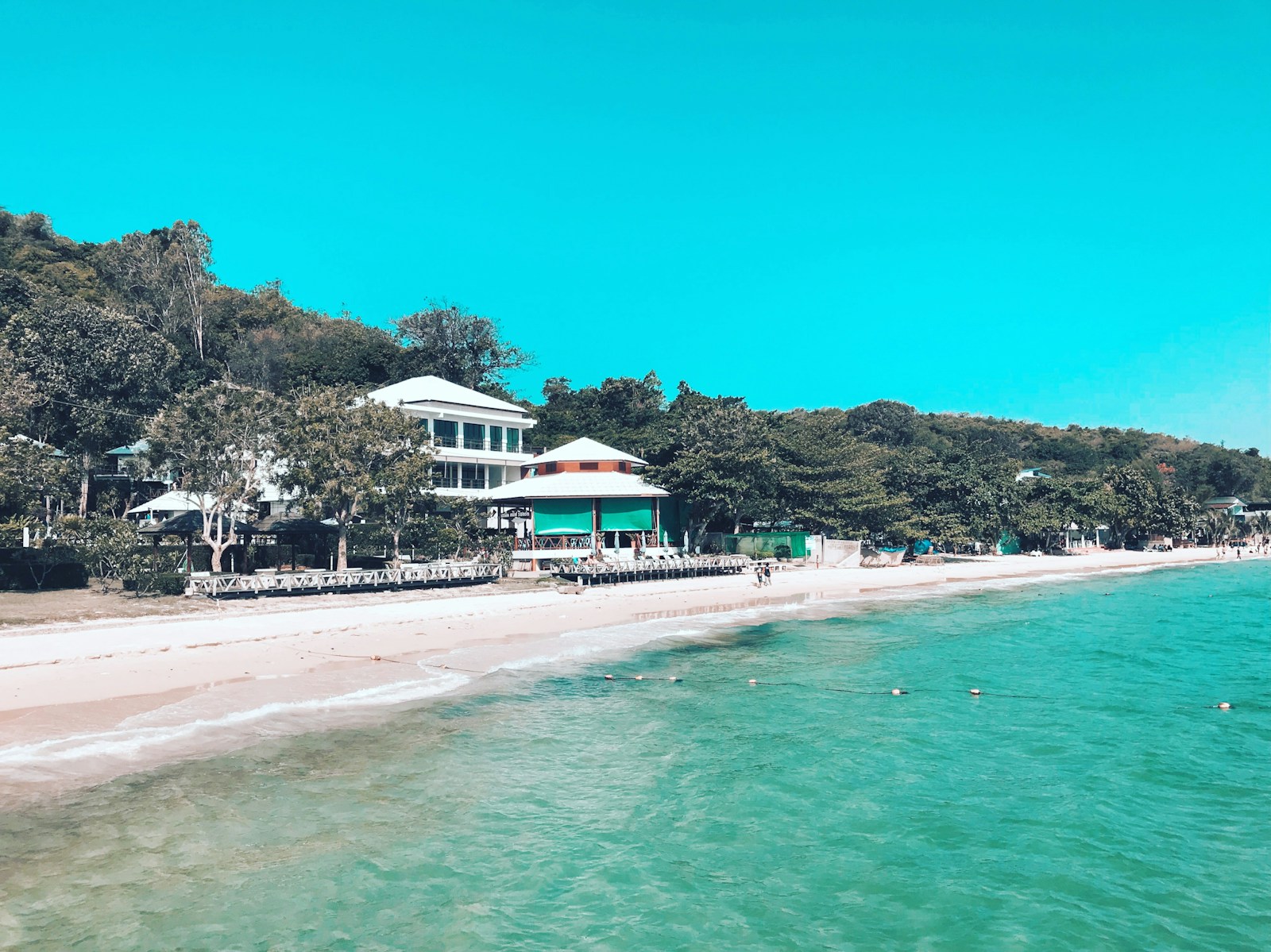Brazil is a country known for its breathtaking landscapes, rich culture, and vibrant festivals. However, safety concerns have often overshadowed its appeal as a travel destination. For years, Brazil has grappled with high crime rates and violence, making travelers wary of visiting. But is Brazil safe? It’s a question many potential visitors ask before planning their trip.
The good news is that Brazil has made significant progress in improving its safety situation. In recent years, the country has experienced a decline in crime rates, with the homicide rate reaching its lowest point in over a decade. While challenges remain, it’s important to recognize that millions of people visit Brazil each year without any safety issues.
To ensure a safe trip to Brazil, it’s important to be informed and take necessary precautions. By following travel safety tips, being aware of potential risks, and choosing your destinations wisely, you can minimize the likelihood of encountering any problems during your visit to Brazil.
Key Takeaways:
- Despite its reputation, Brazil has seen a decline in crime rates in recent years.
- By following travel safety tips and being cautious, millions of people visit Brazil each year without any problems.
- Choose destinations that are known for their safety, such as Florianópolis, Brasília, Curitiba, and Belo Horizonte.
- Take necessary precautions like avoiding risky areas, separating your cash and cards, and being aware of street crime.
- Research and stay informed about travel warnings or advisories before planning your trip.
Safety Tips for Traveling in Brazil

To ensure a safe trip to Brazil, it’s important to follow some essential safety tips that can help protect you from potential risks. By being aware of your surroundings and taking necessary precautions, you can minimize the likelihood of encountering any problems during your travels in Brazil.
General Safety Tips:
- Walk with purpose and confidence to avoid drawing unnecessary attention.
- Carry a spare wallet with only a small amount of cash to use as a decoy in case of theft.
- Separate your cards and valuables to minimize the impact of losing them all at once.
- Avoid bringing expensive items or flashy jewelry to the beach, as they may attract unwanted attention.
- Blend in with the locals by dressing down and avoiding overly touristy attire.
- Download safety apps that can provide you with emergency contacts or real-time safety information.
- Prefer indoor ATMs over outdoor ones, especially at night, to minimize the risk of card skimming devices.
- Double-check the security measures and reviews of your chosen accommodation before booking.
Specific Safety Tips:
- Do not accept free food or drinks from strangers, as they may be spiked with drugs.
- Be aware of distractions and keep an eye on your belongings, especially in crowded areas or public transportation.
- Avoid walking alone at night, particularly in dimly lit or unfamiliar areas.
- Take extra precautions when driving, such as locking car doors, using well-lit parking spots, and avoiding secluded areas.
- Consider purchasing travel insurance that covers medical emergencies, trip cancellations, and theft.
By following these travel safety tips in Brazil, you can enhance your personal security and enjoy a worry-free experience in this beautiful country. Remember, it’s always better to be prepared and take precautions to ensure a safe and enjoyable journey.
| Travel Safety Tips for Brazil | Benefits |
|---|---|
| Walking with purpose | Minimizes the risk of being targeted. |
| Carrying a spare wallet | Acts as a decoy and reduces potential loss during theft. |
| Avoiding bringing valuables to the beach | Reduces the likelihood of theft or attention from potential thieves. |
| Dressing down to fit in | Helps to blend in with the locals and avoid looking like a target. |
| Using safety apps | Provides access to emergency contacts and real-time safety information. |
| Using indoor ATMs | Minimizes the risk of card skimming devices. |
| Double-checking accommodation | Ensures the chosen accommodation meets safety standards. |
| Not accepting free food or drinks | Prevents potential drugging and related risks. |
| Being aware of distractions | Helps to avoid becoming a target of theft or scams. |
| Avoiding walking alone at night | Reduces the risk of being targeted or becoming lost in unfamiliar surroundings. |
| Taking precautions when driving | Enhances personal safety while on the road. |
| Buying travel insurance | Provides financial protection in case of emergencies or unexpected situations. |
Street Food and Tap Water Safety in Brazil

When exploring the vibrant streets of Brazil, indulging in the local street food is a must. Street food in Brazil is generally safe and offers a delicious culinary experience. However, it’s essential to choose food stalls where many locals gather as an indication of both safety and quality.
“Street food in Brazil is a feast for the senses, offering a wide variety of flavors influenced by the country’s rich culinary heritage.”
While the majority of street food in Brazil is safe, it’s advisable to avoid stalls selling street food with shrimp or seafood. These ingredients have a short shelf life and can spoil quickly, increasing the risk of foodborne illnesses. Opting for freshly prepared dishes with cooked proteins or vegetables is a safer choice.
“Exploring the colorful street markets of Brazil opens up a world of culinary delights, allowing visitors to immerse themselves in the local food culture.”
When it comes to tap water in Brazil, it’s generally not safe to drink due to an odd taste resulting from the purification process. Brazilian locals often rely on filtered water or bottled water for their drinking needs. To ensure your well-being during your stay, it’s recommended to bring a personal water filter or solely rely on bottled water.
“While the tap water in Brazil may not be safe for drinking, there are convenient alternatives available, such as bottled water or personal filters.”
By being mindful of where you choose to eat street food and avoiding tap water, you can indulge in Brazil’s vibrant food scene while ensuring your health and safety throughout your journey.
Safety for Solo Travelers in Brazil

Brazil can be a safe destination for solo travelers, but it’s important to take necessary precautions, especially for those with some experience traveling alone. By being cautious and following safety guidelines, solo travelers can have a positive and memorable experience in Brazil.
Safety Tips for Solo Travelers
- Avoid walking alone at night.
- Learn some basic local language phrases to communicate effectively.
- Research safe areas to visit and avoid risky neighborhoods.
- Consider meeting up with other travelers for added safety and companionship.
Solo female travelers should be especially vigilant and take additional safety measures to ensure a safe journey. By following these tips and being aware of their surroundings, solo female travelers can minimize potential risks and enjoy their time in Brazil.
“Traveling alone can be an empowering experience, but it’s essential to prioritize safety and take necessary precautions to ensure a smooth and enjoyable trip.”
| Safety Measures for Solo Travelers | Solo Female Travel Safety Tips |
|---|---|
| Avoid walking alone at night. | Avoid walking alone at night to minimize risks. |
| Learn some basic local language phrases. | Learn some local language phrases for effective communication. |
| Research safe areas and avoid risky neighborhoods. | Research safe areas to visit and avoid risky neighborhoods. |
| Consider meeting up with other travelers. | Consider meeting up with other travelers for added safety. |
By prioritizing safety and taking necessary precautions, solo travelers, including solo females, can have a safe and enriching experience exploring the beautiful country of Brazil.
Safest Parts of Brazil to Visit
While safety can vary throughout Brazil, there are several cities and areas that are considered safer than others. Florianópolis, Brasília, Curitiba, and Belo Horizonte are known for having lower crime rates and are considered safe for travelers. Vacation destinations like Fernando de Noronha are also considered safe. Even in larger cities like São Paulo and Rio de Janeiro, which have higher crime rates, it’s still possible to have a safe visit by following the safety tips mentioned earlier.
| City/Area | Crime Rate |
|---|---|
| Florianópolis | Low |
| Brasília | Low |
| Curitiba | Low |
| Belo Horizonte | Low |
| São Paulo | High |
| Rio de Janeiro | High |
| Fernando de Noronha | Low |
As shown in the table above, Florianópolis, Brasília, Curitiba, and Belo Horizonte have lower crime rates compared to larger cities like São Paulo and Rio de Janeiro. However, by following the safety tips mentioned earlier, you can still have a safe visit to any part of Brazil. Remember to stay vigilant, be aware of your surroundings, and take necessary precautions to ensure a memorable and secure trip.
Conclusion
Brazil is a diverse and vibrant country that offers a myriad of experiences for travelers. While safety concerns exist due to the country’s high crime rates, it’s important to note that Brazil has taken significant steps to improve security in recent years.
By following essential safety tips and being informed about your surroundings, you can have a safe and enjoyable trip to Brazil. It’s crucial to trust your instincts, use common sense, and stay updated on any travel advisories to ensure a smooth journey.
Remember to take necessary precautions such as avoiding risky areas, separating your valuables, and being cautious when exploring new places. Millions of people visit Brazil each year without encountering any problems, and with the right approach, you can have a memorable experience while prioritizing your safety.
FAQ
Is Brazil a safe country to visit?
Brazil has a reputation for high crime rates, but it has seen a decline in recent years. By following safety tips, being aware of your surroundings, and avoiding risky areas, you can have a safe trip to Brazil.
What are some safety tips for traveling in Brazil?
When traveling in Brazil, it’s important to walk with purpose, carry a spare wallet, avoid bringing valuables to the beach, dress down to fit in, use indoor ATMs, double-check your accommodation, and avoid accepting free food or drinks. These precautions will help minimize the risk of theft and other crimes.
Is street food safe in Brazil?
Street food in Brazil is generally safe, but it’s recommended to choose stalls where many locals are gathered to ensure both safety and delicious food. It’s suggested to avoid street food with shrimp or seafood as it spoils quickly.
Can I drink tap water in Brazil?
Tap water in Brazil is generally not safe to drink due to an odd taste resulting from the purification process. Most Brazilians use filters or drink bottled water. It’s recommended to bring a personal filter for drinking water or rely on bottled water during your stay.
Is Brazil safe for solo travelers?
Brazil can be safe for solo travelers, but it’s recommended for those with some experience traveling alone. Solo female travelers should take additional safety measures, such as avoiding walking alone at night, learning some local language, and researching safe areas.
What are the safest parts of Brazil to visit?
Florianópolis, Brasília, Curitiba, and Belo Horizonte are known for having lower crime rates and are considered safe for travelers. Vacation destinations like Fernando de Noronha are also considered safe. Even in larger cities like São Paulo and Rio de Janeiro, it’s still possible to have a safe visit by following safety tips.
Is Brazil a safe travel destination overall?
While safety can vary throughout Brazil, by taking necessary precautions, using common sense, and staying informed about any travel advisories, millions of people visit Brazil each year and have a safe and memorable experience.


